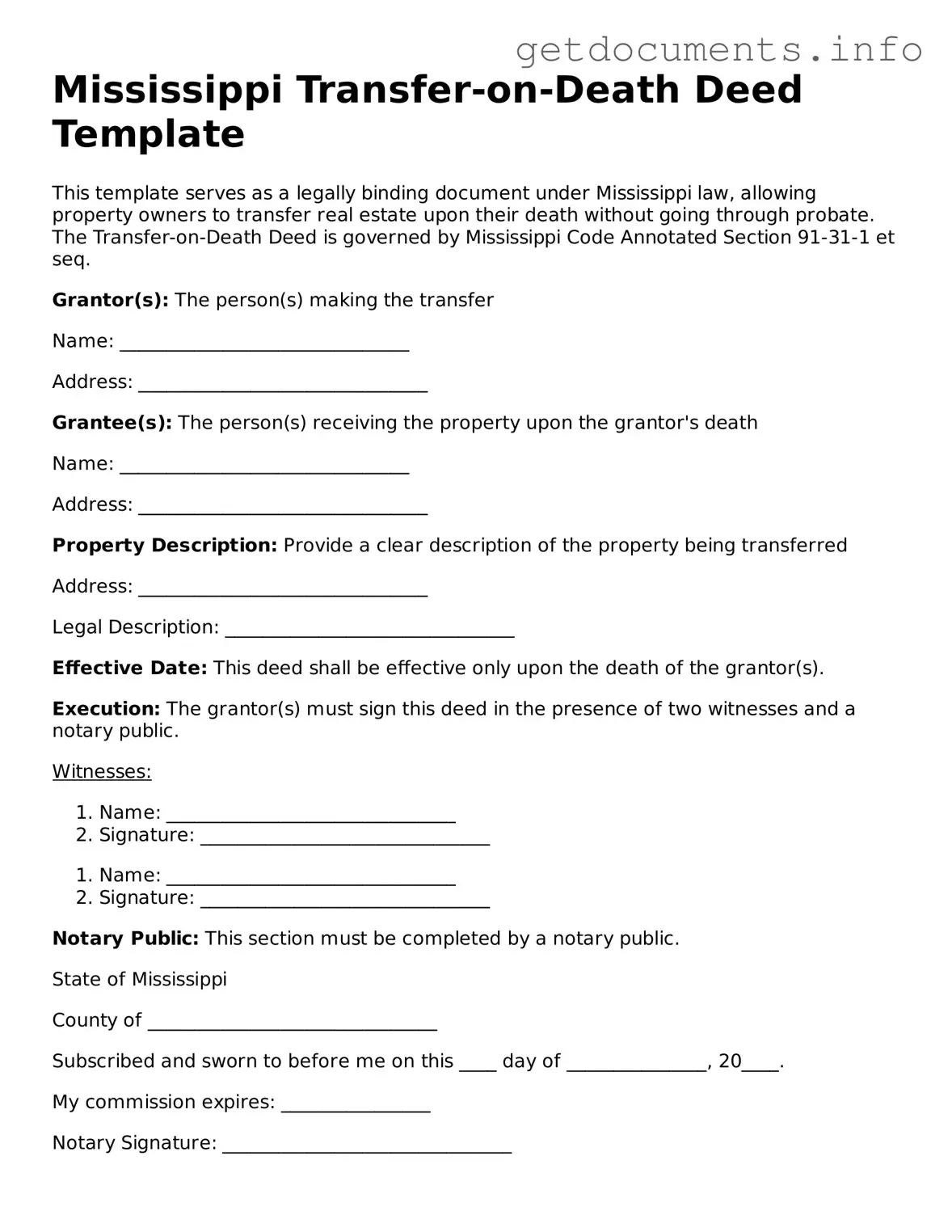Free Transfer-on-Death Deed Template for Mississippi
The Mississippi Transfer-on-Death Deed form allows property owners to designate a beneficiary to receive their real estate upon their death, bypassing the probate process. This legal document provides a straightforward way to transfer ownership while retaining control during the owner's lifetime. To learn more about how to fill out this form, click the button below.
Access Transfer-on-Death Deed Editor

Free Transfer-on-Death Deed Template for Mississippi
Access Transfer-on-Death Deed Editor
Got places to be? Complete the form fast
Fill out Transfer-on-Death Deed online and avoid printing or scanning.
Access Transfer-on-Death Deed Editor
or
⇩ PDF File
